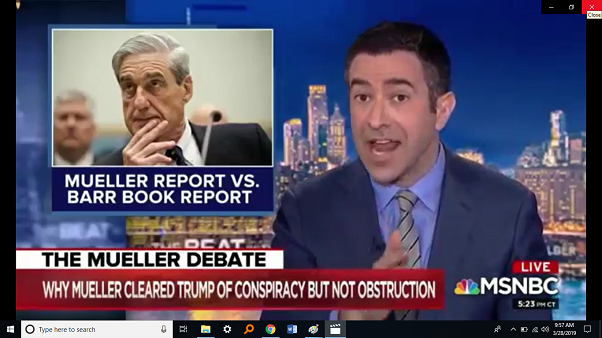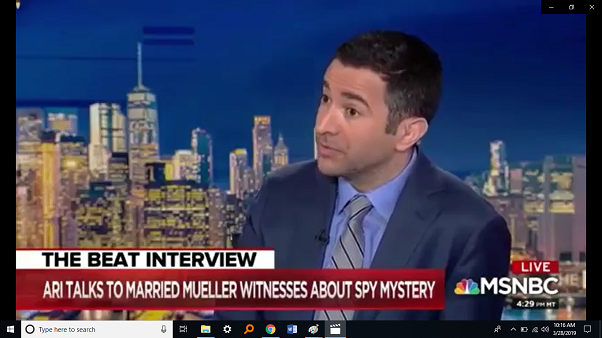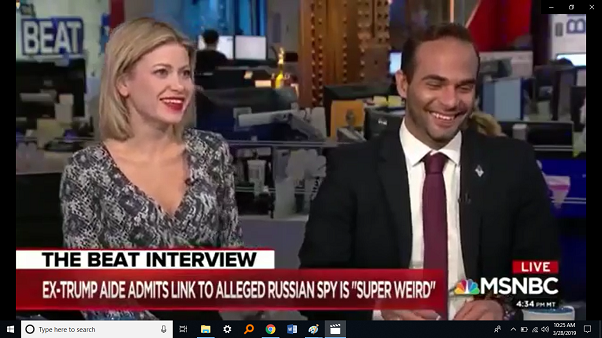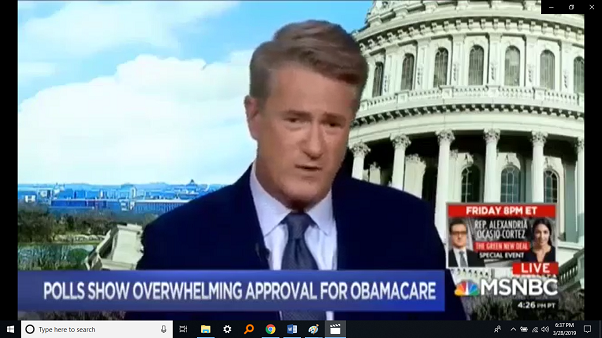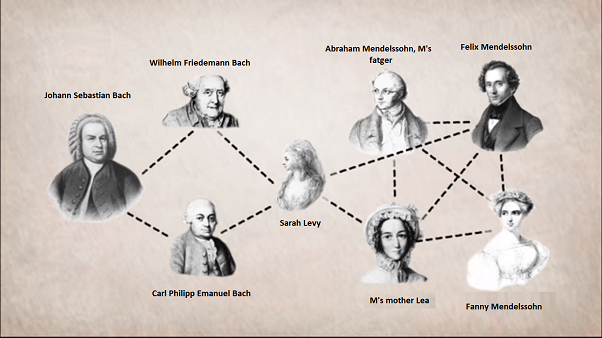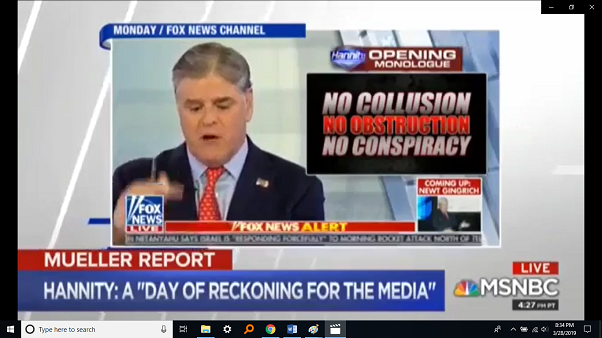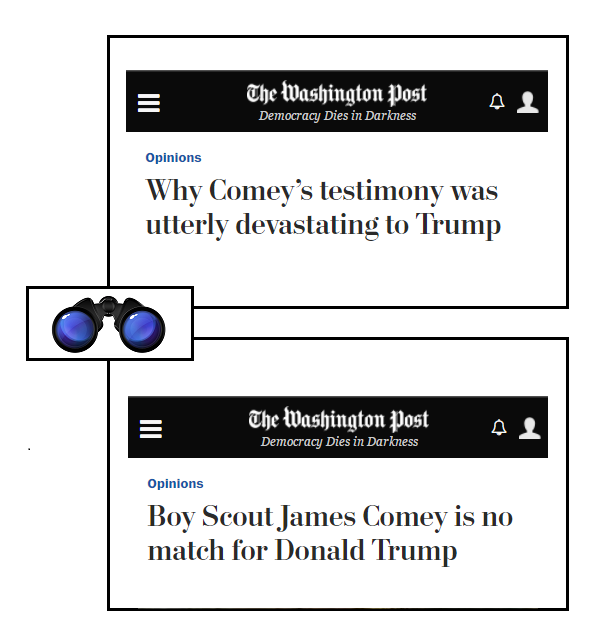Sports metaphors, metaphors, 30, & happy / unhappy phrasings
Friday, March 29th, 2019[ by Charles Cameron — including an intermezzo with Bach’s links with Mendelssohn — as usual, quite a diverse haul ]
.
Nicolle:
There are cracks in the frenzied spin from the White House around the Barr summary of the as-yet-unreleased Mueller report. As the President tracks down axes to grind, consensus is building around Robert Mueller’s refused to exonerate the President in the obstruction of justice investigation ..
Joyce Vance:
We’ve seen all these dots out in the pubic domain, indications of obstruction, and apparently Mueller wasn’t able to connect them, and the question is, Why?
Ari:
You just can’t write a book-report for a book you haven’t read ..
Disclosure: You can. I have.
Here’s a weird sequence..
And if that isn’t weird enough..
Okay, a twinning once I get the transcript: chyrons “Dem grills” / “bip[artisan rebuke”
**
A move I want to watch, and you may too: Hotel Mumbai:
Well, you know, ads intervene in even the best paid programming of mice and men .. and, you know, trailers are ads..
And BTW, the Roger Ebert reviewer wrote:
I watched and wrestled with Anthony Maras’ searing, startlingly confident debut “Hotel Mumbai,” where every fatal bullet fired out of the ruthless terrorists’ semi-automatic weapons hit me at my core.
That’s screen-to-viewer violence, as when the heaalights of a car sweeping up thr movie drive suddenly swerve and blind you..
Back to Hardball:
Regarding his work as a speechwriter for Jimmy Carter, Chris Matthews describes
The most honest and moral man, who honored the call of the prophet
Matthews opening clip:
Jumping over the Barr — let’splay Hardball
Comey:
Chris Matthews, quoting him:
.. all the smoke, if you will, of a deal between the President’s people and the Russians, all the interactions between them, he said — imagine if Obama, in a parallel universe, had those kinds of relationships with the Iranians, would you think they might have investigated it?
Pause.
Trump, a brief essay in turning the other cheek hitting back:
One of the things you should do in terms of success: If somebody hits you, you’ve got to hit ’em back five times harder than they ever thought possible. You’ve got to get even. Get even. And the reason, the reason you do, is so important…The reason you do, you have to do it, because if they do that to you, you have to leave a telltale sign that they just can’t take advantage of you. It’s not so much for the person, which does make you feel good, to be honest with you, I’ve done it many times. But other people watch and you know they say, “Well, let’s leave Trump alone,” or “Let’s leave this one,” or “Doris, let’s leave her alone. They fight too hard.” I say it, and it’s so important. You have to, you have to hit back. You have to hit back.
Times two:
Get even with people. If they screw you, screw them back 10 times as hard. I really believe it.
As a motto:
My motto is: Always get even. When somebody screws you, screw them back in spades.
Chris M:
He [DJT] goes after Adam Schiff .. says, He couldn’t hit a drive 50 yards..
I’m not sure, but today’s [3/29] DJT quote, “he’s not a long ball hitter” may belong here as a second shoe dropping? — or is it a different aport and different target?
Matthews, on healthcare:
Trump is walking right into that Gatling gun***** of defeat — why is he doing this?
**
Okay game of glass beads players, HipBone-style — here’s the Bach-Mendelssohn graph for your consideration:
And –I’m missing one name, which may be in the video — Bach, Mendelssohn and the Saint Matthew Passion:
— a direct line, as I understand it, of teachers and pupils from Bach to Mendelssohn..
Fox inserts:
Matthews:
My morning doppelgänger Joe Scarborough ..
**
Ok, a few loose quotes. I’m looking for Elizabeth Warren using the phrase “war of ideas” but the closest I could find was:
This is the fight of our lives. The fight to build an America that works for everyone, not just the wealthy and the well-connected. It won’t be easy. But united by our values, we can make big, structural change. We can raise our voices together until this fight is won.
Fight of our lives is as strong as fight metaphors get without adding details — Queensbury Rules boxing, Mixed Martial Arts in the Hexagon, a Jagger-style street-fighting man?
This one has been quoted often enough to fade into the woodwork:
The budget is a moral document.
A missing chyron — when people post videos of MSNBC shows, and probably other news channels too, they often leave off the last 5 minutes [sad face] — Green New Deal ignites firestorm ..
O’Donnell 3/28/2019:
.. the suspended animation as we wait for the actual Mueller report ..
Good one: suspended animation*****.
Unknown, 3/28 at 10.17:
Go to present day baseball, stay on the sidelines, stay out of it ..
**
This is an oldie, but I saw it today and it’s a matter of concern for me as I deal with pain from amputations & neuropathy:
Patrick Radden Keefe, The Family That Built an Empire of Pain
**
I’ll close with this tweet —
Congressman Adam Schiff, who spent two years knowingly and unlawfully lying and leaking, should be forced to resign from Congress!
— Donald J. Trump (@realDonaldTrump) March 28, 2019
— and this speech in response to DJT’s attack by Adam Schiff —
— plus this in commentary, from Lawrence O’Donnell:
This is just Kabuki theater, they have no power to remove Adam Schiff from his position ..
Oiut.




